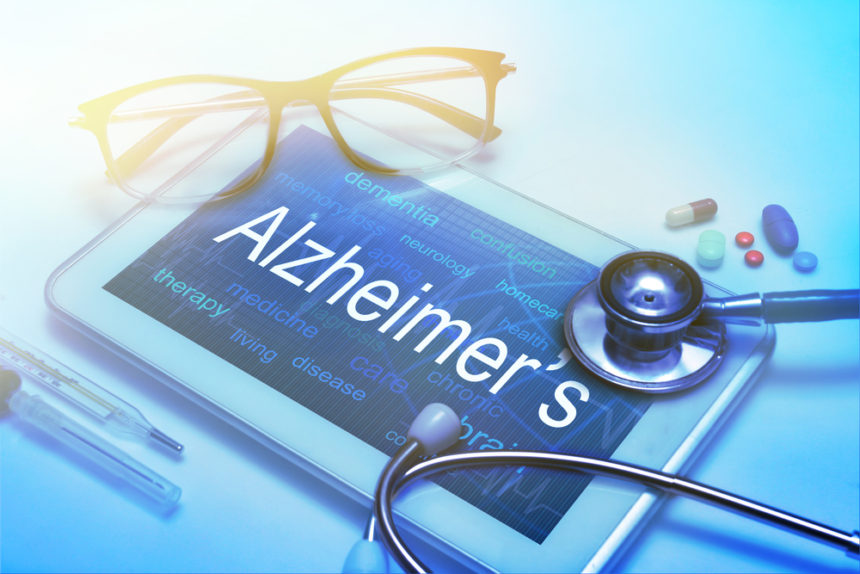This post was originally published on this site
The Alzheimer’s Drug Discovery Foundation (ADDF) announced a second round of research awards totaling about $6 million, part of its Diagnostics Accelerator initiative into better diagnostics for Alzheimer’s (AD) and related dementia.
These six global investigative efforts are in various stages of development, and include an advanced blood test for AD diagnosis, genetic-based blood tests, and a tool using retinal imaging technology.
Launched in July 2018 with seed funding from Bill Gates and others, the Diagnostics Accelerator seeks to speed development of diagnostics and new biomarkers for early detection of AD and associated disorders, and to promote development of targeted treatments.
So far, nearly $10 million in funding has been awarded to 10 scientists worldwide who are developing blood and ocular biomarkers. A first round of awards focused on biomarkers in the blood, eyes, and other fluids and tissues.
The initiative is expected to fund $50 million in ADDF awards over the next three years.
“Our scientific and business due diligence teams chose these awards based on their promising research efforts and potential to bring simple and affordable diagnostic tests to physicians and patients,” said Howard Fillit, MD, founding ADDF executive director and chief science officer, in a press release.
“These awards represent a true collaboration among renowned clinicians who are directly involved with patients and understand the disease, scientists who are developing the tests, and diagnostic companies that understand the regulatory pathways, driving research and product development.”
The second round of research awardees include:
• Henrik Zetterberg, MD, University of Gothenburg ($3.2 million), Sweden: In collaboration with Roche Diagnostics, Zetterberg and his team are developing a blood test to detect certain amyloid-beta protein fragments which, in excess, accumulate to form amyloid plaques, an AD hallmark. This test is close to becoming a viable diagnostic tool.
• Rodney Pearlman, PhD, Bluefield Project to Cure FTD ($1.2 million), U.S.: Pearlman and Bluefield investigators will assess blood neurofilament light chain (NfL) levels in individuals with an inherited form of frontotemporal degeneration (FTD), but who are not yet symptomatic. NfL is a protein indicative of neurodegeneration. A successful test will likely support focused clinical trials, which could lead to effective treatments for FTD, the most common cause of dementia in people under 60.
• Douglas Galasko, MD, University of California at San Diego ($375,000), U.S.: In collaboration with ADx Neurosciences, this AD diagnostic project uses the highly sensitive single molecule immunoassay to measure blood levels of NfL and tau. Tau protein forms neurofibrillary tangles, another Alzheimer’s pathological hallmark.
• Laura Ibanez, PhD, Washington University School of Medicine in St. Louis ($281,370), U.S.: Ibanez and her team are conducting research that could help with diagnoses, clinical trial design for intervention, and disease monitoring. The project involves measuring blood gene products (called cell-free ribonucleic acid) associated with Alzheimer’s, with the aim of producing a non-invasive test.
• Samuil Umansky, MD, PhD, DiamiR Biosciences ($492,000), U.S.: Researchers are developing a targeted diagnostic test to measure specific blood microRNAs (molecular regulators of gene expression) associated with Alzheimer’s neurodegeneration and inflammation. They have evidence that these biomarkers can indicate Alzheimer’s before symptoms begin.
• Eliav Shaked, MSc, RetiSpec ($500,000), Canada: In collaboration with the Toronto Memory Program and the Joseph Sagol Neuroscience Center in Israel — which will validate the technology in patients — Shaked and his team are using retinal hyperspectral imaging to identify Alzheimer’s years before symptoms appear. A pilot human study has used this non-invasive ocular technique to detect small changes in AD biomarkers.
“Our goal is to accelerate the development of early and more accurate diagnostic tests, as well as tests that can accelerate and improve the rigor of clinical drug development,” Fillit said. “Ultimately, these tests will represent the beginning of precision medicine for Alzheimer’s disease and related dementias.”
Founded in 1998, the ADDF works to accelerate development of therapies to prevent, treat, and cure Alzheimer’s. Funding awards for development of digital tests are expected to be announced in the first quarter of next year.
The post ADDF Awards $6M to Projects Looking to Better Diagnose Alzheimer’s, Dementia appeared first on Alzheimer’s News Today.
The post ADDF Awards $6M to Projects Looking to Better Diagnose Alzheimer’s, Dementia appeared first on BioNewsFeeds.


